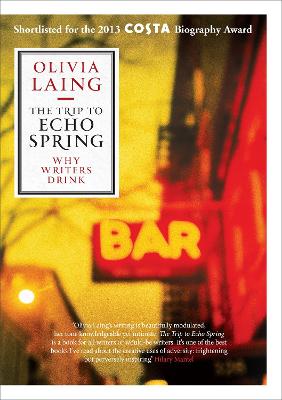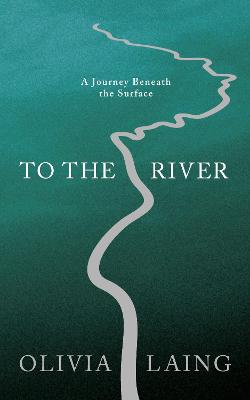Canons
2 total works
Shortlisted for the 2013 Costa Biography Award.
Why is it that some of the greatest works of literature have been produced by writers in the grip of alcoholism, an addiction that cost them personal happiness and caused harm to those who loved them? In The Trip to Echo Spring, Olivia Laing examines the link between creativity and alcohol through the work and lives of six extraordinary men: F. Scott Fitzgerald, Ernest Hemingway, Tennessee Williams, John Berryman, John Cheever and Raymond Carver.
All six of these writers were alcoholics, and the subject of drinking surfaces in some of their finest work, from Cat on a Hot Tin Roof to A Moveable Feast. Often they did their drinking together - Hemingway and Fitzgerald ricocheting through the cafes of 1920s Paris; Carver and Cheever speeding to the liquor store in Iowa in the icy winter of 1973.
Olivia Laing grew up in an alcoholic family herself. One spring, wanting to make sense of this ferocious, entangling disease, she took a journey across America that plunged her into the heart of these overlapping lives. As she travels from Cheever's New York to Williams' New Orleans, from Hemingway's Key West to Carver's Port Angeles, she pieces together a topographical map of alcoholism, from the horrors of addiction to the miraculous possibilities of recovery. Beautiful, captivating and original, The Trip to Echo Spring strips away the myth of the alcoholic writer to reveal the terrible price creativity can exert.
Why is it that some of the greatest works of literature have been produced by writers in the grip of alcoholism, an addiction that cost them personal happiness and caused harm to those who loved them? In The Trip to Echo Spring, Olivia Laing examines the link between creativity and alcohol through the work and lives of six extraordinary men: F. Scott Fitzgerald, Ernest Hemingway, Tennessee Williams, John Berryman, John Cheever and Raymond Carver.
All six of these writers were alcoholics, and the subject of drinking surfaces in some of their finest work, from Cat on a Hot Tin Roof to A Moveable Feast. Often they did their drinking together - Hemingway and Fitzgerald ricocheting through the cafes of 1920s Paris; Carver and Cheever speeding to the liquor store in Iowa in the icy winter of 1973.
Olivia Laing grew up in an alcoholic family herself. One spring, wanting to make sense of this ferocious, entangling disease, she took a journey across America that plunged her into the heart of these overlapping lives. As she travels from Cheever's New York to Williams' New Orleans, from Hemingway's Key West to Carver's Port Angeles, she pieces together a topographical map of alcoholism, from the horrors of addiction to the miraculous possibilities of recovery. Beautiful, captivating and original, The Trip to Echo Spring strips away the myth of the alcoholic writer to reveal the terrible price creativity can exert.
To the River is the story of the Ouse, the Sussex river in which Virginia Woolf drowned in 1941. One midsummer week over sixty years later, Olivia Laing walked Woolf's river from source to sea. The result is a passionate investigation into how history resides in a landscape - and how ghosts never quite leave the places they love.
Along the way, Laing explores the roles rivers play in human lives, tracing their intricate flow through literature and mythology alike. To the River excavates all sorts of stories from the Ouse's marshy banks, from the brutal Barons' War of the thirteenth century to the 'Dinosaur Hunters', the nineteenth-century amateur naturalists who first cracked the fossil code. Central among these ghosts is, of course, Virginia Woolf herself: her life, her writing and her watery death.
Woolf is the most constant companion on Laing's journey, and To the River can be read in part as a biography of this extraordinary English writer, refracted back through the river she loved. But other writers float through these pages too - among them Iris Murdoch, Shakespeare, Homer and Kenneth Grahame, author of the riverside classic The Wind in the Willows.
The result is a wonderfully discursive read - which interweaves biography, history, nature writing and memoir, driven by Laing's deep understanding of science and cultural history. It's a beautiful, lyrical work that marks the arrival of a major new writer.
Along the way, Laing explores the roles rivers play in human lives, tracing their intricate flow through literature and mythology alike. To the River excavates all sorts of stories from the Ouse's marshy banks, from the brutal Barons' War of the thirteenth century to the 'Dinosaur Hunters', the nineteenth-century amateur naturalists who first cracked the fossil code. Central among these ghosts is, of course, Virginia Woolf herself: her life, her writing and her watery death.
Woolf is the most constant companion on Laing's journey, and To the River can be read in part as a biography of this extraordinary English writer, refracted back through the river she loved. But other writers float through these pages too - among them Iris Murdoch, Shakespeare, Homer and Kenneth Grahame, author of the riverside classic The Wind in the Willows.
The result is a wonderfully discursive read - which interweaves biography, history, nature writing and memoir, driven by Laing's deep understanding of science and cultural history. It's a beautiful, lyrical work that marks the arrival of a major new writer.

